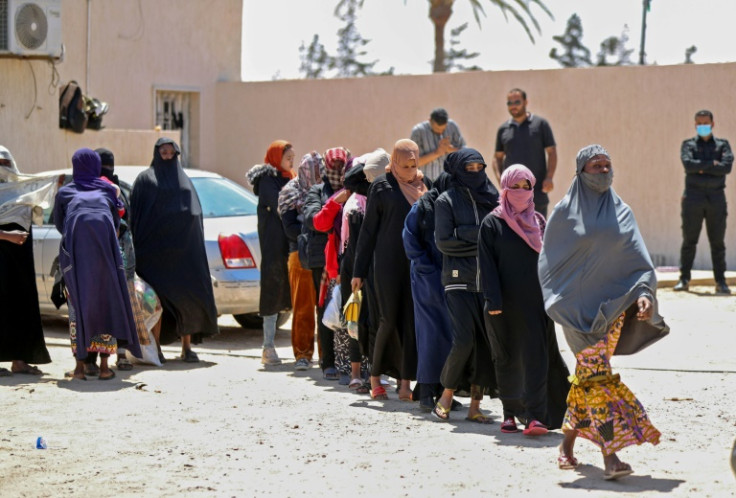
Women represent almost 50 per cent of the world's migrant population, currently estimated to be a staggering 281 million people.
While men make up more than half of those who have migrated overseas and children account for around 14 per cent, UN Women has named migrant women as "agents of change".
Women flee their home countries for several reasons, including persecution, conflict, climate-related disasters, poverty, sexual and gender-based violence, a lack of opportunity and gender inequalities.
According to a United Nations-sponsored panel on violence against women, female migrants face alarming levels of sexual and other forms of gender-based violence and harassment throughout the migration process.
In regard to the lack of opportunities presented to women in low-income countries, a survey amongst migrant women found that between 33 to 37 per cent of the females said that their insufficient earnings in their countries of origin was a motivating factor to their reasons for migration.
The survey interviewed women from Libya, East Africa and West Africa and was conducted by UN Women.
While female migrants reshape gender norms, ideas and behaviours through cultural and social knowledge that they have inherited, says the female empowerment arm of the United Nations, there is no gender-based approach to migration laws.
To ensure safe migration amongst females fleeing human rights violations, UN Women have urged world leaders to create a series of gender-responsive policies, laws and programmes that address the unique impact of migration on women and girls.
According to the most recent data obtained by UN Women, female migrants make up a staggering 42 per cent of the estimated 169 million migrant workers globally.
Despite 68 per cent of the world's labour force being dominated by male employees, out of the remaining 32 per cent, a huge 67 per cent of all migrant women are employed in the labour force.
While more migrant women than non-migrant women work in the labour sector, 67 per cent against 51 per cent, there is almost no difference between the participation rate of migrant and non-migrant men in the labour force – 78 per cent against 77 per cent.
Data also shows that the impact of migrant women on the global workforce is heightened through their employment in other service-sector roles.
According to UN Women, almost three quarters, 74 per cent, of migrant women work in domestic industries including the healthcare and education sector.
During the COVID-19 lockdown, migrant women were predominantly at risk of losing their jobs, compared to that of migrant men.
While just 22 per cent of working female migrants are covered by social protection, unofficial employment and registration left female migrant workers excluded from national labour protections during the pandemic.
After interviewing migrant women from Kyrgyzstan who were working in caregiving, domestic and janitorial roles in Russia during the COVID-19 pandemic, the non-governmental organisation Insan-Leilek Public Foundation found that the females were "the first to be fired".
"The pandemic played such a cruel joke on us," said one domestic worker.
"They start with migrants; they are the first to be fired," she added.
In some countries, female migrants who had obtained domestic employment recalled being fired after they were forced to take a pregnancy test. Occasionally, pregnant women are also deported to their countries of origin.
Female migrants are also employed in various other industries, including finance, science, academia and government.
Considering the impact of migrant women on the global workforce, the lack of gender-responsive migration policies and laws not only risks the safety of women and girls already fleeing persecution but also threatens gender equality in employment and female contributions to the global economy.







